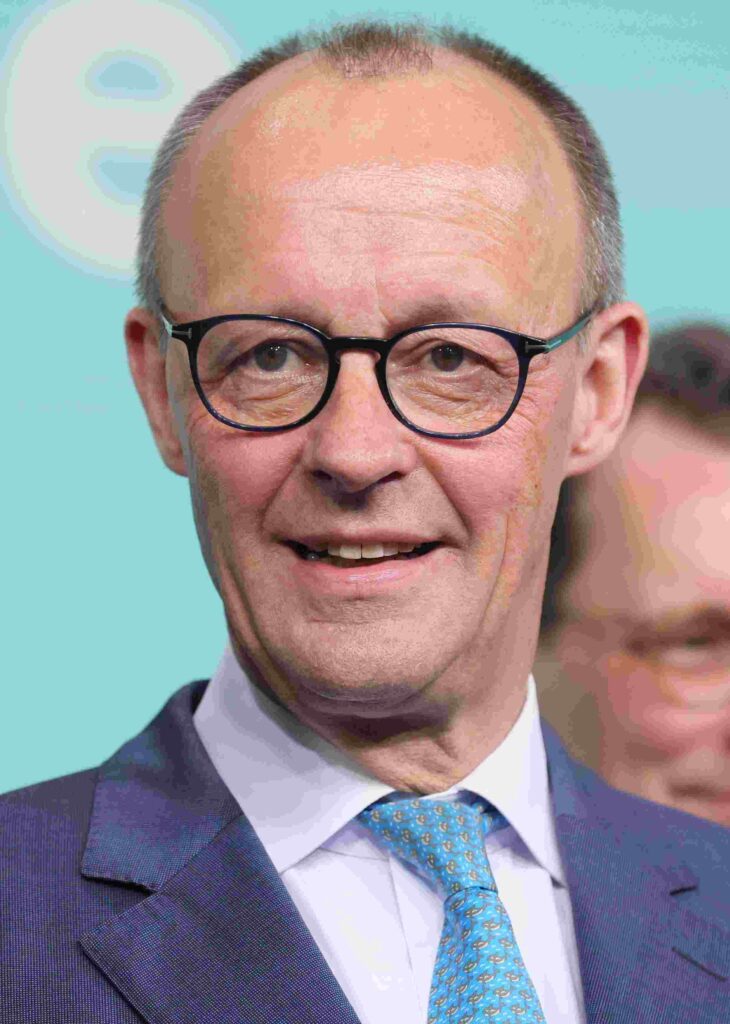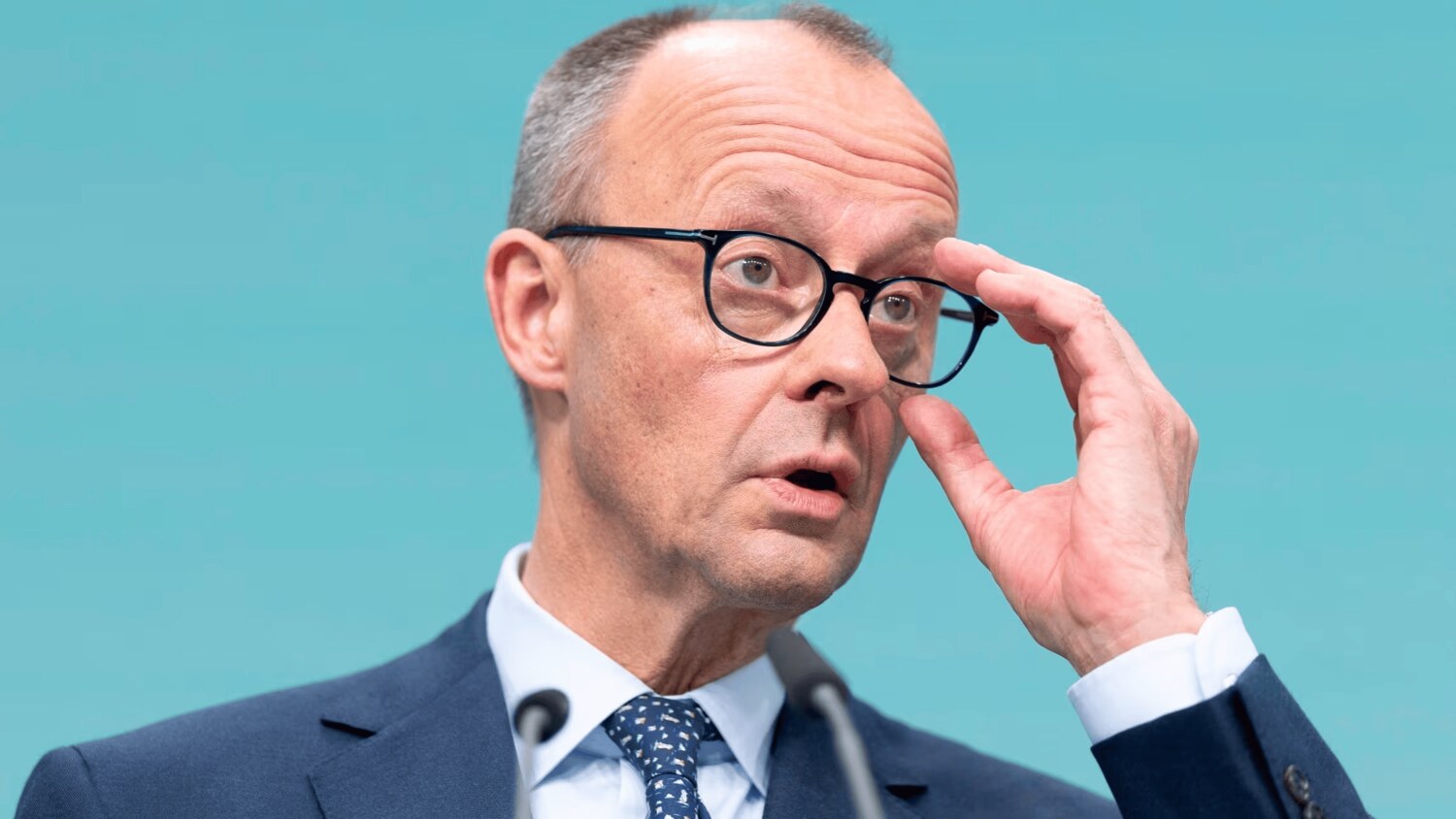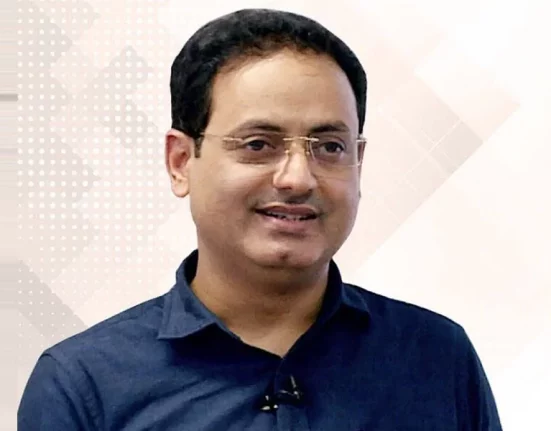Friedrich Merz-led CDU/CSU bloc won Germany elections with 28.5% of votes, surpassing Olaf Scholz’s SPD.
Early Life and Education
Friedrich Merz was born on November 11, 1955, in Brilon, a town in the North Rhine-Westphalia region of Germany. Coming from a family with a strong legal background, he was exposed to the principles of law and governance from an early age. In 1976, he embarked on a journey to study law, setting the foundation for what would become a distinguished career in both law and politics.
Friedrich Merz Biography
| Date of Birth | Nov 11, 1955 |
|---|---|
| Age | 70 Years |
| Birth Place | Brilon, Germany |
| Residence | Brilon, Germany |
| Country | Germany |
| Profession | Politician and Member of the German Bundestag |
| Education | Graduated |
| Father | (will update soon) |
| Mother | (will update soon) |
| Nationality | German |
| Siblings | (will update soon) |
| Brother | (will update soon) |
| Religion | Christianity |
| Spouse | Charlotte Merz (m. 1981) |
| Horoscope | Scorpio |
| Weight | 74 KG |
| Height | 6 feet 4 inches (1.96 m) |
| Net Worth | (will update soon) |
| Category | Politicians |
Political Beginnings and Early Career
Merz’s political journey began in 1972 when he joined the Christian Democratic Union (CDU). His early years in politics were marked by a deep commitment to conservative principles and economic reform. He entered the European political scene in 1989 when he was elected as a Member of the European Parliament (MEP), where he served until 1994. During this period, he honed his legislative skills and developed a keen understanding of European governance.
Entry into the Bundestag and Rise in CDU

In 1994, Friedrich Merz transitioned to national politics by securing a seat in the Bundestag, Germany’s federal parliament. Representing the Hochsauerlandkreis constituency, he won with an absolute majority, reflecting his growing popularity and political acumen. His influence within the CDU grew rapidly, and in 2000, he was appointed as the party’s parliamentary leader, a role that positioned him as a key figure in shaping Germany’s political and economic policies.
Political Setback and Temporary Departure
Despite his rising stature, Merz faced a significant setback in 2002 when he was replaced by Angela Merkel as the CDU’s parliamentary leader. His influence within the party diminished further in 2005 when the CDU/CSU alliance formed a government with the Social Democratic Party (SPD). Feeling sidelined, Merz made the unexpected decision to step away from active politics in 2009. He redirected his focus toward a successful career in law and finance, leveraging his expertise to work in high-profile legal and financial firms.
Return to Politics and Leadership Aspirations
Merz’s political hiatus lasted nearly a decade, but his ambition to lead Germany never waned. In 2018, following Angela Merkel’s announcement of her retirement, he re-entered the political arena with a bid to succeed her. However, he narrowly lost to Annegret Kramp-Karrenbauer. In 2020, he saw another opportunity when Kramp-Karrenbauer stepped down, but again, the CDU chose Armin Laschet as its leader.
Leadership of CDU and Path to Chancellorship
In 2021, despite his party’s defeat in the general elections, Merz managed to reclaim his place in the Bundestag. His perseverance paid off in 2022 when he was elected as the national chairman of the CDU, solidifying his status as a central figure in German politics. Under his leadership, the CDU sought to reclaim its political dominance and reassert its conservative values.
2024 German Elections and Victory
The 2024 German general elections marked a turning point for Friedrich Merz. His leadership of the CDU/CSU bloc helped secure 28.5% of the votes, making his party the dominant force in German politics once again. His victory came at the expense of incumbent Chancellor Olaf Scholz’s Social Democratic Party (SPD), which suffered a significant defeat. Merz’s success also came amid a strong performance by the far-right Alternative for Germany (AfD), which secured 20.7% of the vote. Following his victory, Merz assured the nation that Germany would once again be governed with stability and reliability.
Political Stance and Key Policies
Friedrich Merz is known for his strong conservative stance on various political and economic issues. His policies prioritize economic growth, tax cuts, and financial discipline, reflecting his background in law and finance. Additionally, he has taken a hardline approach toward undocumented immigration, advocating for stricter immigration laws and border controls. His leadership aims to restore Germany’s economic strength and uphold conservative values while navigating the complex political landscape of coalition governance.
Challenges and Future Prospects
Despite his electoral success, Merz faces significant challenges in forming a stable coalition government. The fragmentation of German politics, with the rise of parties like the AfD, poses a hurdle to effective governance. Additionally, he must work to unite the CDU/CSU bloc and implement his economic and immigration policies without alienating key political allies. As he takes on the role of Germany’s leader, his ability to navigate these challenges will define his tenure and shape the future of the nation.
Personal Life
Friedrich Merz has been married to Charlotte Merz since 1981. Charlotte, a fellow lawyer, has established herself as a judge. The couple has three children. Despite his demanding political career, Merz has maintained a strong family life and is known for balancing his professional and personal commitments effectively.
Legacy and Conclusion
Friedrich Merz’s journey from a young CDU member to Germany’s Chancellor is a testament to his resilience, strategic thinking, and unwavering commitment to conservative principles. His leadership marks a new chapter in German politics, one that will be closely watched both domestically and internationally. As he embarks on this new phase, his success will depend on his ability to unite Germany, strengthen its economy, and address pressing social and political challenges.






